"Therefore" is a word the poet must not know
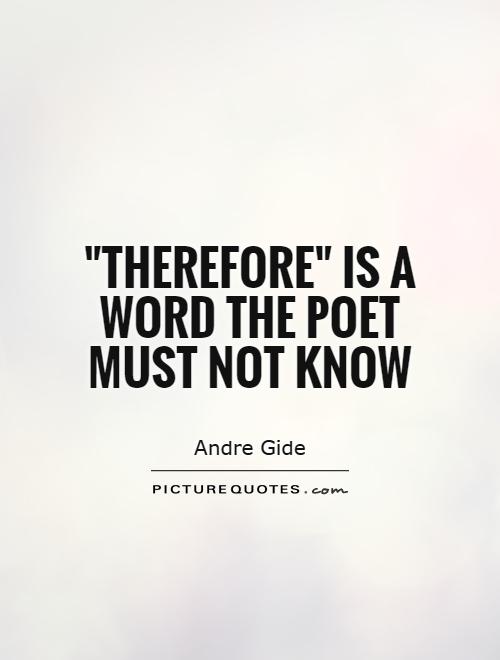
"Therefore" is a word the poet must not know
"Andre Gide, a French author and Nobel Prize winner in literature, once famously said, “'Therefore' is a word the poet must not know.” This statement reflects Gide's belief in the importance of intuition and creativity in the poetic process, rather than relying on logical reasoning or deduction.Gide was known for his innovative and experimental approach to literature, often challenging traditional conventions and pushing the boundaries of what was considered acceptable in his time. He believed that poetry should be a spontaneous outpouring of emotion and imagination, rather than a carefully constructed argument based on logic and reason.
In Gide's view, the word "therefore" implied a sense of inevitability and predictability, which he felt was antithetical to the spirit of poetry. By using this word, a poet would be imposing a sense of order and structure on their work, rather than allowing it to flow freely and organically.
For Gide, poetry was a form of self-expression and self-discovery, a way to explore the depths of the human experience and connect with the universal truths that lie beneath the surface of everyday life. By eschewing the word "therefore," Gide was encouraging poets to embrace uncertainty and ambiguity, to embrace the unknown and the unknowable.
Gide's statement can also be seen as a rejection of the rigid rules and conventions that often govern traditional poetry. By urging poets to ignore the word "therefore," Gide was advocating for a more fluid and flexible approach to writing, one that allowed for spontaneity and creativity to flourish.






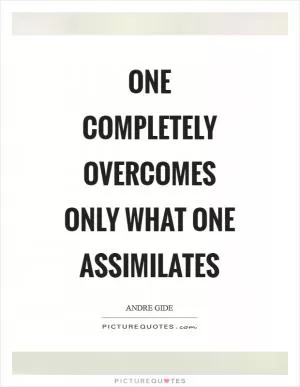
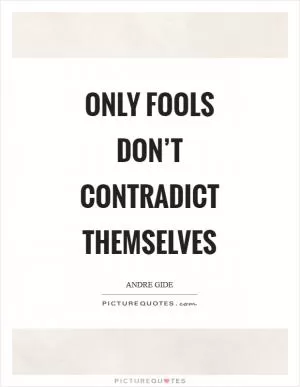

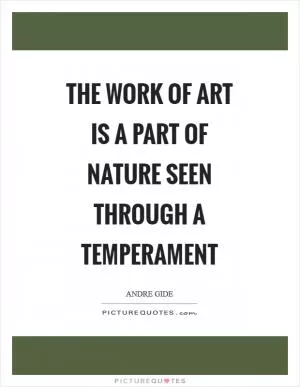
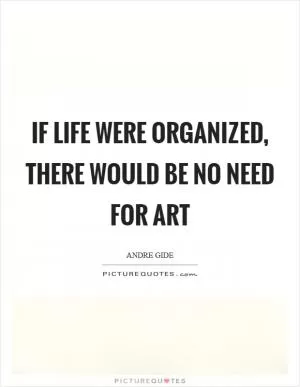
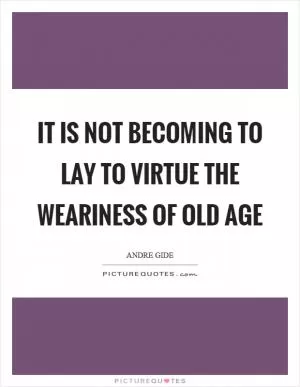
 Friendship Quotes
Friendship Quotes Love Quotes
Love Quotes Life Quotes
Life Quotes Funny Quotes
Funny Quotes Motivational Quotes
Motivational Quotes Inspirational Quotes
Inspirational Quotes